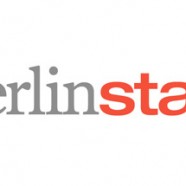Zynga – Startup 2011
And the winner is….It is best known for its whimsical online games on Facebook, and more than 270 million people use its games each month.
Zynga is the Web’s largest social game company.
Zynga priced its initial public offering at $10 a share, at the top end of its expected range. The offering, which raised $1 billion, values the company at $7 billion.
The highly anticipated public offering — the largest for an American Internet company since Google — was a critical milestone for the industry, solidifying the legitimacy of a business model once mocked by investors. At $7 billion, Zynga rivals traditional gaming companies like Electronic Arts, which makes a lot of its money at brick-and-mortar stores.
It was a nice rally at the opening, on Dec. 16, Zynga’s shares rose a modest 10 percent, to $11, and then quickly pulled back. The stock was trading at $9.30, below its offering price.
Zynga’s weak performance reflected the broader market for initial public offerings. Newly public technology stocks have been buffeted by macroeconomic turmoil and jittery investors, who remain skeptical about the business models.
In the coming months, Zynga will be a critical test for the fragile market. Traders are closely watching the stock to get a sense of how Facebookwill fare, when it goes public in 2012.
Few Internet start-ups have grown as swiftly as Zynga, creator of a sprawling network of virtual farms, cities and poker tables that is preparing to go public in one of the most highly anticipated offerings of 2011.
While from the outside Zynga may have the fun and whimsy of the Willy Wonka chocolate factory, the organization thrives on numbers, relentlessly aggregating performance data. The data pipeline allows Zynga to fine-tune its games to optimize engagement, helping the company attract some 270 million unique users each month, many through Facebook.
Its games, like FarmVille and CityVille, are free. Nearly all its revenue comes from selling virtual goods to the ‘‘whales,’’ the 5 percent of its players who want to get ahead quickly, say, by buying tractors or weapons. The larger the pool of casual players, the more whales. Most of that playing is done via Facebook, which takes 30 percent of the revenue that Zynga makes on its site and wields the power in the relationship.
Not sure if Zynga will be a coporate company or startup anymore.
Keep goin.







Book-marked, I enjoy your site!